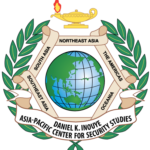By Francis Hualupmomi, Ph.D.
Public Servant — Papua New Guinea*
There is an immediate concern that the Pacific region will face a major challenge in managing geopolitical dynamics as Micronesia withdraws from the Pacific Islands Forum (PIF).
The Pacific region was stable before and after the end of World War II, but recent events relating to the PIF suggest that all is not well. The Micronesian group of island countries (Marshall Islands, Kiribati, Nauru, and the Federated States of Micronesia) has withdrawn from PIF after its candidate failed to win the position of Secretary-General. The position of Secretary-General of PIF supposedly rotates among the three sub-regions, Melanesia, Polynesia and Micronesia, as a tradition. As Papua New Guinea’s (PNG) term ended, there was thus a collective understanding that Micronesia would assume the position, as Polynesia held the position before PNG. The outcome of the election of the Secretary-General was thus unexpected and extremely divisive.
It is apparent that the pull-out was expected, as the signal was given earlier on. In the 2019 PIF Meeting, Micronesia announced its candidate, Gerald Zackios, and argued that he must be given the opportunity to lead PIF as a Pacific way of honouring unwritten conventions and agreements. However, in the election of PIF Secretary-General, Polynesia’s candidate from the Cook Islands was appointed, which did not go down well with Micronesia. This outcome, in turn, triggered Palau and others to collectively withdraw their membership through a signed communique.
From a geopolitical point of view, Australia and New Zealand may have influenced the election to reduce Chinese influence in the Pacific. The deepening influence of China in Small Pacific Island Countries (SPIC) is an indisputable concern for Australian policy-makers and its intelligence community, who have been trying to contain Chinese influence through their ‘Step Up’ foreign policy. However, Palau president Surangel Whipps Jr said that if Australia and New Zealand had not thrown their weight around and voted for a Polynesian candidate, this problem would not exist. In the meantime, Australia is in damage control and states that it will work closely with Micronesia and members of PIF to resolve this matter amicably.
Given the fact that the Pacific region is an important geo-strategic theatre where WWII was fought, and current competitors vie for geo-economic interests and strategic assets, such as huge deposits of petroleum, minerals and fisheries, competition over controlling the ocean is inevitable. This is evident in the increasing foreign aid and investment in the region through soft power diplomacy. For instance, between 2011 and 2017, Australia spent 96 percent of its total development aid to the Pacific region as promised compared to China who spent 20 percent of its total development aid – Australia is still leading in foreign aid to the region. Certainly, Australia would not concede to China’s pursuit.
Australia’s framing of the Pacific as its backyard, sets up a natural tension with any new Pacific player, and especially China. From a Pacific Islands perspective, this monopolistic stance is quite harmful to SPICs because it limits their development and international relations, and restricts their progress in terms of finding the most competitive markets for their natural resources.
New Zealand also influenced the appointment of the Secretary- General given the fact that Cook Islands is her free association state. Like Australia, New Zealand is concerned with limiting Chinese influence in the Pacific. New Zealand rejected Micronesia’s claims and called for collaboration in this matter.
Australia and New Zealand through their Pacific ‘Step-Up’ and ‘Reset’ foreign policies have clearly framed the Pacific as their sphere of influence where they intend to have more control and influence. Both countries have already curved the lines of control – Australia over Melanesia and New Zealand over Polynesia. In collaboration with France, which controls five Polynesian groups of island countries, these colonialist Pacific powers have prevented Micronesia from holding PIF leadership, but to what end? Since the US, not China, has the majority of influence in Micronesia, this Triad has effectively disturbed an integrated pacific, and side-lined US influence in the region. Their long-term vision can only be to extend their influence over all Pacific Islands and eventually bring Micronesia into their yard.
Papua New Guinea, representing Melanesia, on the other hand, supported Micronesia and maintains that decisions of the PIF must be consensus-based, much like ASEAN. Voting has not been encouraged as argued by former PNG Prime Minister, Hon. Peter O’Neill.
However, the Triad’s plan to limit Micronesian and thus US influence has backfired with their departure from PIF. Further, this forced regional disintegration has created a vacuum for Chinese influence. Pacific regionalism has rarely been tested, and it is highly unlikely that the problem will be solved in a Pacific Way unless Australia and New Zealand adopt a more “hands off” approach to PIF.
In conclusion, the recent decision by the Micronesian nations has aptly demonstrated that the region is incrementally heading into unstable waters as geopolitical tensions rise. Australia’s framing of the Pacific as its backyard has led to an unwanted outcome. Stability within PIF is important and member countries must have the freedom to settle disputes in the true spirit of the Pacific Way.
* Dr. Hualupmomi a political and policy analyst and strategist in the areas of geopolitics, intervention; energy security; energy governance; resource governance; and strategic policy. He holds a BA and BA Honours in Political Science (UPNG), Graduate Certificate in Higher Education Policy Management (Melbourne University, Aus.), Masters in International Politics (Jilin University, China), and Ph.D. in Public Policy (Victoria University of Wellington, NZ).
The views expressed in this article are the author’s alone, and do not necessarily reflect the official position of his organization, DKI APCSS or the United States Government.
February 2021
Published: February 19, 2021
Category: Perspectives
Volume: 22 - 2021
Author: Francis Hualupmomi





